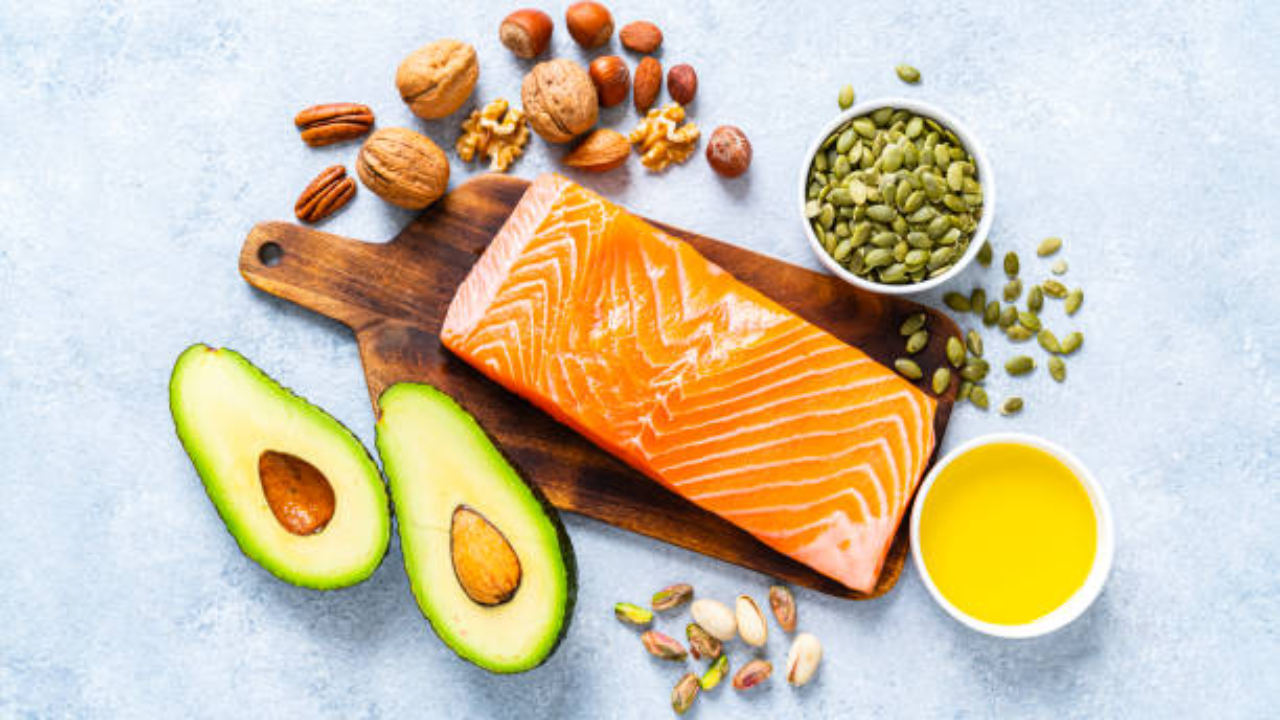4 Diabetes-Friendly Grocery Picks

Managing Type 1 diabetes or Type 2 diabetes can make grocery shopping feel complicated.
However, it doesn’t have to be overwhelming. A registered diabetes dietitian and certified diabetes educator recently shared four practical and affordable grocery items from Safeway that are excellent choices for people living with diabetes. These items help maintain balanced blood sugar levels and provide key nutrients without complicated meal prep.
Whether someone is working with a type 1 diabetes dietitian, a type 2 diabetes dietitian, or a general diabetes educator, these foods are reliable staples that fit well into a diabetes-friendly lifestyle.
1. Walnuts: A Heart-Healthy, Low-Carb Snack
Nutritionally, walnuts provide:
- Almost no carbohydrates
- About 5 grams of protein per serving
- Healthy fats that ...
What a T1D Dietitian Says About Sunburns

As the weather warms up and more time is spent outdoors, many people with diabetes may overlook one small but powerful factor that can impact their blood sugar: sunburns.
Yes, sunburns—those painful, red reminders of forgotten sunscreen—can throw off your blood sugar control in ways you might not expect.
A registered diabetes dietitian, certified Diabetes Educator, and someone who has lived with Type 1 diabetes for over 25 years, knows this situation firsthand. And he has one message: don’t underestimate how your skin’s reaction to the sun can impact your diabetes management.
Sunburns and Blood Sugar: What's the Connection?
For people living with Type 1 diabetes (T1D) and Type 2 diabetes (T2D) alike, it’s essential to understand how stress affects blood sugar. And yes, sunburn is considered a type of physical stress on the body.
When the sun damages skin, the body kicks into repair mode. That triggers the release of stress hormones like cortisol. Unfortunately, cortisol can cau...
Day One CGM Accuracy Tips from a T1D Dietitian

Continuous glucose monitors (CGMs) have changed the game for people living with diabetes
But anyone who has worn one knows that the first 24 to 48 hours of a new CGM session can be frustratingly inaccurate. For those relying on these devices, especially anyone using an insulin pump with an algorithm, those early readings can create serious challenges.
A registered diabetes dietitian, certified diabetes educator, and strength coach, has lived with Type 1 diabetes for over 25 years. Through personal experience and his work helping others manage blood sugar, he’s seen just how off those Day 1 CGM readings can be. He’s had readings that were off by as much as 80 to 100 points during the first day of wear.
That kind of inaccuracy isn’t just annoying—it can be dangerous, especially when insulin dosing depends on real-time data. Fortunately, there’s a simple strategy that can help your CGM start off with better accuracy: soak the sensor before activating it.
What Is the CGM “Soak” Meth...
Diabetes Dietitian’s Top 4 Costco Foods

For individuals living with Type 1 diabetes or Type 2 diabetes, choosing the right foods can be a daily challenge
That’s why a trusted diabetes dietitian and certified diabetes educator has shared four favorite Costco finds that are easy to use, friendly to blood sugar levels, and dietitian-approved.
Whether someone is working with a T1D dietitian, a T2D dietitian, or simply seeking practical, reliable advice from a diabetes educator, these selections offer smart, convenient choices that support health goals without sacrificing flavor or ease of use.
1. Safe Catch Tuna
When it comes to high-protein, low-carb foods, Safe Catch Tuna is a standout. With 43 grams of protein per can, zero carbs, and nearly no fat, this option has minimal blood sugar impact, making it ideal for those managing either Type 1 or Type 2 diabetes.
What makes this brand unique is its commitment to safety—it’s the only tuna company that tests every fish for mercury. That’s crucial, as people living with dia...
Smart Correction Tips from a Type 1 Diabetes Dietitian

For people living with type 1 diabetes, navigating high blood sugar can feel like a constant balancing act
One minute their blood sugar is too high, and the next it’s crashing. This all-too-common experience is something every Type 1 diabetes dietitian and Diabetes Educator knows well — and it’s often caused by something called “insulin stacking.”
Let’s set the scene: someone with Type 1 diabetes notices their blood sugar is high. They’ve already taken a corrective dose of insulin. They’ve had water. Maybe they’ve even walked around a bit, hoping the activity will bring their blood sugar back into range. But the number isn’t budging.
What happens next? If they’re like many people with Type 1 diabetes, they’ll feel frustrated and take another dose — a "rage bolus." Then maybe another. Eventually, the insulin kicks in all at once, and their blood sugar crashes. Welcome to the blood sugar roller coaster.
But there’s a better way, and it starts with understanding how insulin works —...
How to Stay in Range on Vacation

Vacations can feel overwhelming for people managing diabetes
Whether someone is living with Type 1 or Type 2 diabetes, the lack of routine, unfamiliar foods, and unpredictable schedules often leads to anxiety around blood sugar control. But it doesn’t have to be this way. With the right mindset and strategies from a trusted diabetes dietitian or Diabetes Educator, traveling can be both enjoyable and healthy.
Take it from someone who recently went on vacation and averaged a 132 blood sugar—all while eating delicious meals. Yes, it’s possible, and this experience offers a real-life example of how individuals with diabetes can travel confidently.
Staying Active on the Go
One of the first key steps was maintaining a consistent level of physical activity. A Type 1 diabetes dietitian or T1D dietitian would agree: movement boosts insulin sensitivity, which makes blood sugar easier to manage. The traveler emphasized that workouts weren’t skipped just because it was vacation time.
This...
4 Dietitian-Approved Target Finds

Living with type 1 diabetes or type 2 diabetes means thinking about food a little differently
Whether it’s planning meals or picking snacks, you’ve got to consider how every bite might impact your blood sugar. But that doesn’t mean it has to be hard—or boring.
A trusted diabetes dietitian or Diabetes Educator will often recommend building meals around convenience, balance, and most importantly, blood sugar stability. That’s why shopping smart at everyday stores like Target can be a game-changer.
Here are four simple, dietitian-approved finds from Target that are not only blood sugar-friendly but also quick, tasty, and perfect for anyone managing T1D or T2D.
1. Magic Spoon Cereal
Breakfast cereals are usually packed with sugar and processed carbs, not ideal for someone living with diabetes. But Magic Spoon is different. This cereal tastes like a childhood favorite but with a nutritional upgrade that even a T1D dietitian would approve of.
Each serving has:
- 14 grams of protein...
Blood Sugar Management Is More Than Just Carbs

For individuals newly diagnosed with type 1 diabetes or type 2 diabetes, the first piece of advice they often hear is simple: watch your carbs
It’s the primary focus during early appointments with doctors and Diabetes
Educators, and it quickly becomes the foundation of daily food decisions, counting the carbs, matching the medication, and monitor the blood sugar.
But according to experienced diabetes dietitians, that’s only part of the story.
While carbohydrates have a direct and immediate impact on blood sugar levels, there are two other nutrients that can be just as influential: protein and fat. Both have unique effects on blood glucose and when not properly understood, can lead to unpredictable highs and lows.
Unfortunately, many healthcare providers don’t have time to fully explain this. That’s where a Type 1 diabetes dietitian, Type 2 diabetes dietitian or a Diabetes Educator can offer deeper guidance.
Beyond Carbs: The Hidden Impact of Protein and Fat
While carbohydrat...
3 Simple Ways to Lower A1C
For anyone living with diabetes—whether type 1 diabetes or type 2 diabetes—the usual advice is no surprise: food, exercise, and medication are the main players when it comes to managing blood sugar
However, according to experienced diabetes dietitians, a few highly effective but often overlooked strategies can dramatically improve A1C levels in as little as two weeks.
These strategies are simple, backed by science, and require very little extra effort. Whether someone is working with a T1D dietitian, a T2D dietitian, or navigating diabetes independently, these underrated habits can lead to meaningful progress.
1. Better Sleep = Better Blood Sugar
A growing body of research and real-world clinical experience shows that sleep plays a major role in blood sugar regulation. Individuals with type 1 diabetes often get less sleep than those without the condition, due to overnight lows or frequent nighttime wake-ups. The same is true for those with type 2 diabetes, especially when insulin r...
Diabetes on the Trail

“Must eat food. Must turn back or perish.”
If you live with diabetes, that sentence probably hits way too close to home. Whether you have Type 1 diabetes or Type 2 diabetes, you've likely had one of those moments where your blood sugar suddenly dictates your entire life, like when you're out hiking. Your body feels like it's moving in slow motion, your tongue is dry, and your brain is screaming, “I need sugar. Now.”
Welcome to life in diabetes land. It’s not always glamorous, but with the right tools and the right support, you don’t have to feel like every hike (or workout, or grocery run) is a battle.
The Blood Sugar Rollercoaster
Let’s say you head out for a hike. You’ve packed your snacks, checked your levels, and feel ready to crush it. But within the first hour:
🩸 You drop low. Suddenly, all you want to do is sit down and inhale snacks like a human vacuum.
🩸 Even...

